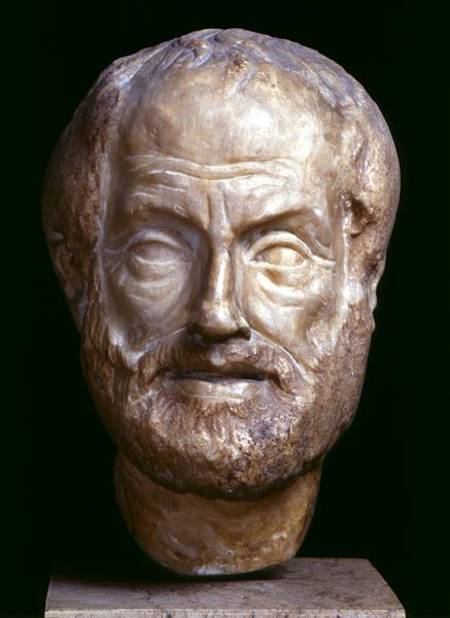So let's see we have no archaelogical evidence, we have no contemporary visual evidence, and we have no written record from the time of his supposed existence. Tell me what do you use as the determining factor to differentiate between mythical and historical figures?
there is plenty of archaeological evidence that people lived in those places at those times. there is no archaeological evidence of any identifiable PERSON living there. Was vortigern a really person? people used to question the 'reality' of Boudicea, of Arthur. Not so much any more. The stories are, in their essence, PLAUSIBLE even if in places, fantastic. So a rational person acccepts the plausible while dismissing the fantastic as hyperbolic.
WTF are you talking about, I know personally of a book written by Aristotle because I've personally read it, IE Nicomachean Ethics. He has numerous other surviving works as well.
i read his ethics and othes too (i recommend his treatise on Esthetics)... now, kindly point to the original hand scribed source. there is none, of course, all were transcriptions, the originals (if there were any) long lost. no empirical evidence that he wrote anything, anymore than we have empirical evidence of jesus or buddha or.. or.. or...
Furthermore; Lysippos made a bronze bust of Aristotle in 330 BC, 8 years before his death.
how do you know that? someone TOLD you. if that statue exists and can be verified as having been sculpted in the 3rd c BCE, perhaps you can tell me where i can go to see it?
or, perhaps, you mean this:
a ROMAN era copy of a statue PURPORTEDLY made by Lysippos. there are lots and lots of statutes of buddha, jesus... hell there are statues of Apollo.
The trial of Socrates is well recorded much of what we know of him is likely mythical.
yep, i know. I wrote a paper comparing the trial of Socrates and that of Jesus... remarkably similar men that lived remarkably similar lives and died in remarkably similar circumstances.
you know what i bet.... i bet that Jesus got a LOT of his thinking from Socrates and that the folks that wrote his story may have borrowed heavily from Socrates' story. but that we have second hand reports of both denies the existence of neither.
the trial of Socrates is well recorded by a disciple who, according to you, cannot be trusted.
it is, in fact, very difficult to differentiate truly historical and purely mythical figures because history tends to be NOT truly true and mythical figures tend to be drawn from quite real men and women.
we KNOW that George Washington was a real man that really lived. we also have an appreciable body of myth that surrounds him. that is why learning to separate fact from fiction is important. and accepting that fictions do not spring from earht wholly formed. they are built up, usually from nonfictions.
myth tends to be gross embellishment and only rarely true fiction. Beowulf... probably really existed, probably really was a Geat and likely had a hand in rescuing some tribal chief in denmark. he may well have succeeded him. NO... he there was no Grendel. THAT part was made up to make him look to others as great as he SEEMED to his own folk.
that was a common theme. it still is. we still do it.
geo.

